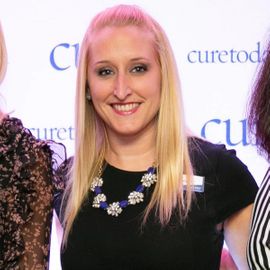- About Us
- Advertise / Support
- Editorial Board
- Contact Us
- CancerNetwork.com
- TargetedOnc.com
- OncLive.com
- OncNursingNews.com
- Terms & Conditions
- Privacy
- Do Not Sell My Information
- Washington My Health My Data
© 2025 MJH Life Sciences™ and CURE - Oncology & Cancer News for Patients & Caregivers. All rights reserved.
FDA Grants Priority Review to GARDASIL 9 for Expanded Age Indication

Kristie L. Kahl is vice president of content at MJH Life Sciences, overseeing CURE®, CancerNetwork®, the journal ONCOLOGY, Targeted Oncology, and Urology Times®. She has been with the company since November 2017.
The application is seeking approval for GARDASIL 9 to be used in women and men aged 27 to 45 years for the prevention of certain cancers and diseases caused by the nine human papillomavirus (HPV) types covered by the vaccine.
The Food and Drug Administration (FDA) granted priority review to a supplemental Biologics License Application for GARDASIL 9 (Human Papillomavirus 9-valent Vaccine, Recombinant) for an expanded age indication, according to Merck, the vaccine’s manufacturer.
The application is seeking approval for GARDASIL 9 to be used in women and men aged 27 to 45 years for the prevention of certain cancers and diseases caused by the nine human papillomavirus (HPV) types covered by the vaccine.
“Women and men ages 27 to 45 continue to be at risk for acquiring HPV, which can lead to cervical cancer and certain other HPV-related cancers and diseases,” Alain Luxembourg, M.D., Ph.D., director of clinical research at Merck Research Laboratories, said in a press release. “We look forward to working with the FDA on the review of this application for GARDASIL 9, which, if approved, would enable more people to have access to the vaccine.”
The agency has set a target action date of Oct. 6, 2018.
The vaccine is currently indicated for use in females aged 9 through 26 years for the prevention of cervical, vulvar, vaginal, and anal cancers; and in males of the same age range for the prevention of anal cancer.
“According to the CDC, there are approximately 14 million new genital HPV infections in the United States each year, half of which occur in people 15 through 24 years of age,” the release said. “For most people, HPV clears on its own, but for others who don't clear the virus it could lead to certain cancers and other diseases in males and females. There is no way to predict who will or won’t clear the virus.”
Related Content:



